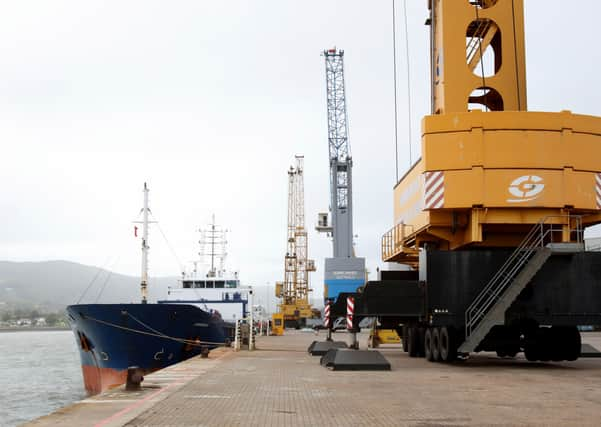Lord Empey: Irish Sea border biggest constitutional change since partition in 1921


However, Sir David Lidington, who as de facto deputy prime minister to Theresa May had a key role in the Brexit negotiations which ultimately ended in the new internal UK border, has argued that putting border controls at the Irish land border could have been an even bigger threat to the Union.
Interviewed for a BBC Spotlight programme last night which explored the implications of the new checks at ports such as Larne and Belfast, Lord Empey said that what is happening is “hugely significant”.
Advertisement
Hide AdAdvertisement
Hide AdThe former Stormont minister said: “It’s the most significant change that has taken place since partition.
“The deal that we have on the table with the Northern Ireland Protocol is a very bad deal. And while Theresa May had this backstop. Well, most of us were very unhappy with that. But at least there was no border either on the island or between the islands. This is serially much worse.
“Imagine that we have to treat goods coming from England and Scotland as if they’re coming from a third country. Now if you’re part of a union, you don’t have that.
“I mean, that’s like saying Texas has to treat goods coming from Florida as if it was coming from a third country. I mean, that’s not compatible with unionism.”
Advertisement
Hide AdAdvertisement
Hide AdHowever, Sir David Lidington said that putting the border at the actual land border would have been constitutionally disastrous.
He told Spotlight: “I think it adds to a sense of insecurity amongst loyalists and some unionists. But I think that the imposition of a hard border of any kind, north-south would have been a bigger threat to the Union.
“It is my frank view if you look at the demographics now ... the Union depends on us continuing to persuade enough moderate nationalists and enough non-aligned people that actually being part of the UK is in their interest and that people who want to identify as Irish can live, can go about their lives on the island of Ireland without any sense of being restricted or oppressed in their Irishness by this.”
Although the DUP enthusiastically supported Brexit, it has consistently argued against any Irish Sea trade border.
Advertisement
Hide AdAdvertisement
Hide AdNevertheless, just weeks ago DUP Agriculture Minister Edwin Poots backed down in a row with London and allowed his civil servants to press ahead with helping to construct the new border infrastructure after he got London to pay for it.